
Gran Turismo 7 (PS5) - Review
by Lee Mehr , posted on 17 April 2022 / 6,561 ViewsReviewer's Note: The majority of my experience is reflective of Version 1.09 and beyond. I wasn't personally affected by any server outages or other launch-day problems that were reported elsewhere.
Consider this for a moment: a racing franchise with its latest sequel sporting a deluxe "25th Anniversary Edition." That says a lot about the history of Kazunori Yamauchi, Polyphony Digital (originally called Polys Entertainment), and the Gran Turismo series. Its vaunted status of originating the driving simulator was something I immediately recognized back then, despite my attention being focused across other genres. But it took no time to notice this series' exuberant enthusiasm for all things cars and car history. After nearly a decade since the last mainline entry, there's only one pertinent question to ask: what history will Gran Turismo 7 leave?
As the starter pistol’s fired, Polyphony's eccentric attitude comes through before reaching the main menu. You'll need to tweak several brightness & exposure settings before participating in a music rally mini-game, which also acts as a limited tutorial. After completing that and getting a notification that you're literally allowed to play GT7, you watch an unskippable seven-minute montage showcasing miscellaneous historical events and old-timey motorsports footage. Now's your chance at the main course.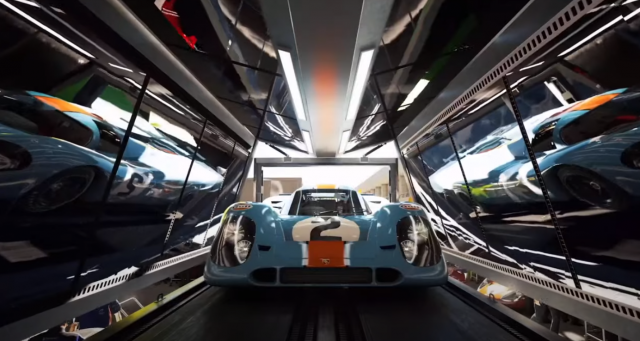
Although I have some quibbles over the tutorial's limited information, that previous paragraph is less of a direct criticism and more of a warning for unsuspecting players. If you've grown accustomed to the approachability of other racers, Polyphony's aims will feel completely foreign. There's a particular mode Gran Turismo wants you to operate from. To be honest, a healthy part of my respect for GT7 stems from this insulated approach; in fact, I'd argue the granular things it cares about and the expectations put on its players are why Gran Turismo remains a powerhouse.
Adding onto its peculiar creative decisions, everyone you meet is just a name, a static picture, and whatever personality you read within their text blurbs (with no voice acting). The hub within the main hub, The Café, is owned by your quintessential quest giver, Luca. The structure is familiar to any gearhead at this point: start at lower-tier races, net prize cars for placing 3rd or better, and repeat after your current car menu is complete. From there, everything takes on a comfortable pace. Certain menu objectives will reveal something else in the main hub, like the surprisingly fun photography system, and newer cars' Performance Points (PP) will continue increasing. Each complete car menu also means you get a history lesson from Luca about how that trio of cars made waves in the industry.
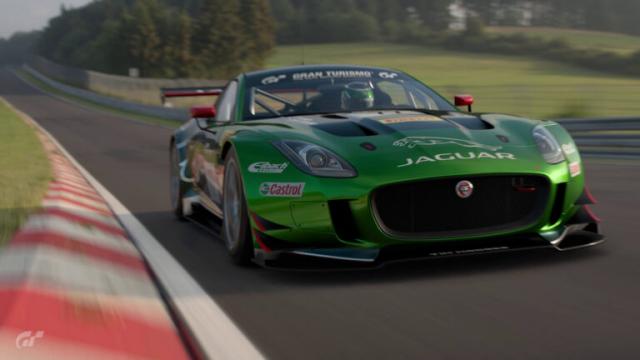
Contrasting its oddball personality outside the track, GT7's mechanically specific racing continuously captivates. Even with the Intermediate settings (at first), the plethora of different rules I had to intuit from recent arcade-emphasized racers was invigorating. Although it initially seems subtle, the lessons for respecting speed, corners, and so on can feel harsh, but serve a purpose. Even with low-ranked vehicles, you're growing more cognizant of your car's capability and the track layout in tandem.
I'd be remiss to not mention how DualSense functionality contributes to every race. I still vaguely recall my first time playing Forza Motorsport 5 and feeling the trigger feedback from an Xbox One controller. Now, the latest evolution here captures more details of the road. You'll feel haptic feedback for little gaps in the asphalt in one part of Tokyo Expressway, for example. Beyond simply giving more fidelity to the world, your DualSense also feels like an unspoken guide in mastering each track; in essence, you can viscerally feel those times where you're pushing too far on a turn or miscalculating how much pressure to put on the gas through the controller.
GT7's sim aspirations are heightened further by the multitudinous tuning options. Depending on the races you're hungry for, you'll eventually have to upgrade or downgrade your preferred car. It's astounding just how often I had to acclimatize to the same vehicle with a better set of brakes, suspension, and so on; conversely, you tacitly feel its weakened potential if you had to use a Power Restrictor for a qualifying race. The vehicle flow charts itemizing each car part aren't just for show. There are dozens of calculations happening under the hood and your eager ambition can result in a perfect turn or veering into a sand pit. 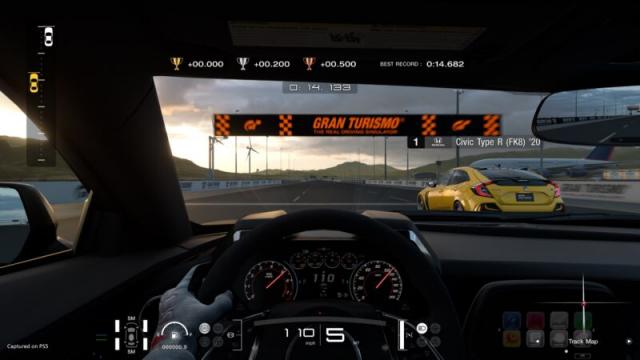
While it earns plenty of praise for the racing simulation and physics, a few design aspects could be tuned up. The most glaring example: AI is somewhat disappointing. They're not overly hostile nor unfair; instead, they’re often too robotic and passive. The near-universal structure is a rolling start with you at the back and the leader roughly 20-40 seconds ahead of you (depending on the race). Even on Hard, most of the challenge comes from tussling for the top spot. A happier medium would be each racer still acting like a good sport but also authentically guarding their position as best as possible.
This issue is compounded in several early races thanks to a prize car. As soon as the License Center opened, I was eager to net my Class B License. Reaching a bronze medal (at least) in all of the B tests nets you a '16 Renault Clio. Since there's no PP limit for those objective-based races, I was consistently cruising to first place until Luca's menus got more demanding. Even though adding more personal challenges (like removing assists) didn't change much early on, the tough fights really start once muscle cars arrive.
There are a couple of nitpicks outside the races themselves too. For one, early race payouts are too stingy. Polyphony has been tweaking earned credits behind the scenes (Version 1.12 as of writing this), but it's still obnoxious. They’re a mere pittance compared to the cosmetic & tuning options for each vehicle. Plus, the lower-tier roulette cards you win feel deliberately designed to consistently give you the worst payout. Although the pacing with which you unlock several modes takes a long time, I'm hesitant to consider it an outright flaw. Having an expectation of track knowledge and modest driving skills through several campaign missions before playing online does make sense. Just be warned that you're playing by Polyphony's rules here.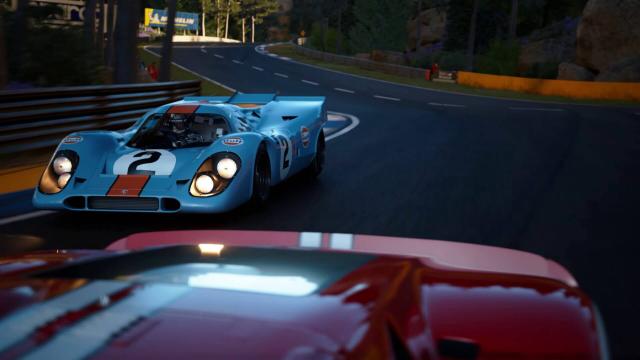
To call GT7's presentation a "mixed bag" would be overselling the specific complaints I have overall. Given that it's a cross-gen title trying to maintain parity, certain graphical elements aren't using the PS5 to the fullest. Fortunately, the vehicles look fantastic. Whether you're driving in Performance Mode or gawping at the improved details in a replay, committed craftsmanship has been put into each car's exterior and cockpit. Polyphony doesn't get to flex a 1000-car launch roster like Gran Turismo 5, but I'll happily take a 400+ count for no older-gen reskins.
Sound design is damn near impeccable too. More than just being loud engines, there's so much texture between the various cars; if you set engine sounds to max and drive next to several other opponents, you could list out their car models while blindfolded. From top to bottom, a lot of care went into this soundscape. This is especially fortunate since you'll want to mute most of the aggressively bland soundtrack. There are some choice tunes, but most are the auditory equivalent of Wonder Bread. All the more shocking since there’s a supplementary Music Rally mode too.
If able to make concessions for the soundtrack, limited damage modeling, and graphical nitpicks, it's still easy to be immersed by the races. After you've learned the track and turned off the visually-obtrusive assists, it takes on a wholly different atmosphere, especially during rainy weather or nighttime races.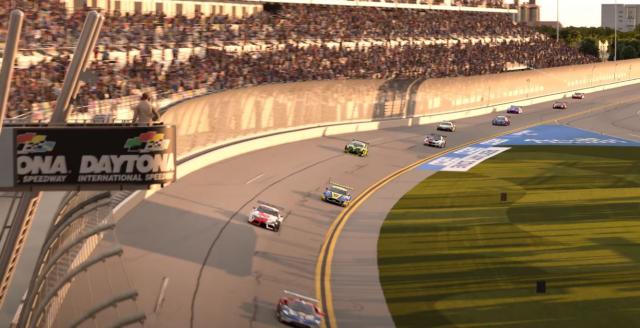
Beyond the single player races and tweaking your car, there are more modes to enjoy. The highlight for me goes back to those focused license tests. The repetitive training of one small task while racing against my previous fastest time is such a simple & tantalizing structure. My DualSense R2 trigger is starting to jam thanks from reflexively smashing on the gas. Although I haven't explored them as intensely, it's a similar story for Missions.
Even if these secondary modes don't captivate you, there are other additions like the livery editor, a fully dedicated photography mode (called Scapes), and The Museum. You can spend hours filtering through stock videos and reading up on various historical events and Gran Turismo history. There's such a goofy charm in seeing a pop-culture fact alongside the release of Gran Turismo 2. It's like you're attending a weekly sermon at The Church of MotorTrend so that you'll remember to venerate the art of racing.
Online is essentially split between two houses: Online and Sport Mode. The latter is the equivalent of ranked racing: tougher enforcement of racing etiquette (punishments with added time) and real-time hours for official qualifiers and tournaments. Online is about hopping into lobbies and potentially duking it out with 15 other drivers. As far as functionality goes, a few fuses must be replaced. Racers with yellow connections (modest ping) have a tendency to hop from place to place. These slight auto-corrections make it tough to gauge their true location, artificially limiting your opportunities to get ahead. I'm having genuine fun with it, but there are some bugs to handle.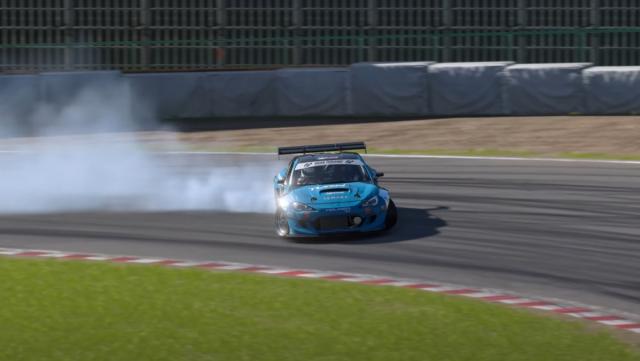
The two universally contested aspects are the always-online demands and microtransactions. With the former, certain single player modes are playable offline: Time Trail, Drift Trial, Music Rally, and Single Race. You can't unlock cars via the Café nor can you play Missions. Yamauchi's reason for this online requirement was to disincentivize cheating through modified save data. Regardless of how valid that justification sounds, it still sucked when I was temporarily locked out of getting my next menu book solely because of this decision.
Microtransactions are a different quality to juggle, not just for their inflated prices but the corporate sneakiness of revealing them after the first wave of reviews. Upon seeing the glamorous choices in the Legendary Cars dealership, it's surprising to see modest seven-figure/eight-figure prices in GT Credits (in-game currency), but my eyes widened a bit upon seeing the real-world equivalent costs:
$2.49 - 100,000 Credits
$4.99 - 250,000 Credits
$9.99 - 750,000 Credits
$19.99 - 2,000,000 Credits
It's worth noting later races give bountiful rewards and there are valid ways of farming credits; however, I don't think that negates the little psychological tricks naturally embedded in this system. Between Halo Infinite and this, I'll admit it feels like I’m wading through rough waters. Even though Infinite has a better defense (being free-to-play), both still put me in a bind of considering an automatic score reduction, even if to a minimal degree. But if it didn't feel overly invasive to my overall enjoyment, should a written warning be considered enough? Regardless of my ultimate answer, these distractions encourage me to run back to indies and middle-market stuff – perhaps also "complete editions" of AAA titles.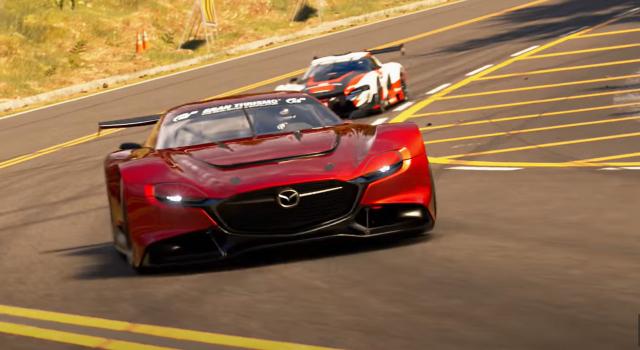
When ignoring the half-baked always-online demands and microtransactions, Gran Turismo 7's in-depth simulation and offbeat attitude can be consistently enjoyed. The strange contrast between the realistic racing and the sincere corniness in its presentation feels like a breath of fresh air. There are some misgivings to find within its design, on and off the track, but Polyphony's meticulous craftmanship handedly surpasses them. GT7's history won't be considered spotless, especially around launch, but it will still serve as a reminder of the idiosyncratic details that make it stand out from the competition.
Contractor by trade and writer by hobby, Lee's obnoxious criticisms have found a way to be featured across several gaming sites: N4G, VGChartz, Gaming Nexus, DarkStation, and TechRaptor! He started gaming in the mid-90s and has had the privilege in playing many games across a plethora of platforms. Reader warning: each click given to his articles only helps to inflate his Texas-sized ego. Proceed with caution.
VGChartz Verdict
8
Great
This review is based on a retail copy of Gran Turismo 7 25th Anniversary Edition for the PS5
More Articles
Great review, fair too!
That was a nice read.
An 8? What's better than GT7, what race sim are you playing other than GT7 that does a better job on console?
The lottery tickets you pick up are the most frustrating part of it for me. You work hard get one and then are "rewarded" by getting the worst pick of the bunch 19/20 times. It really is ridiculous.
As for driving, I found the race speeds of competitors puzzling, for example in one race i was 10-12seconds per lap faster over the first 3 of 5 laps and took the lead and pull out a 5-6second gap. IN the last 2 laps however they managed to actually lap faster than me. Where did the massive performance boost come from?
I hope they allow you to sell cars and another feature i would like is an easier way of seeing what extras you have added to a car. Sometimes you go and buy loads of parts only for their to be a PP limit and you have to go back and fumble your way through making changes.











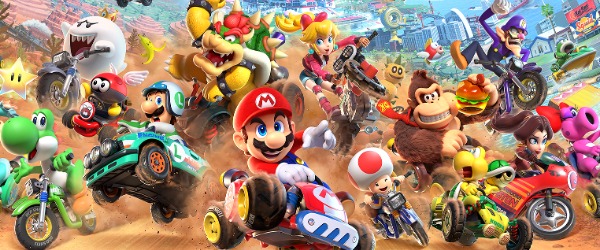












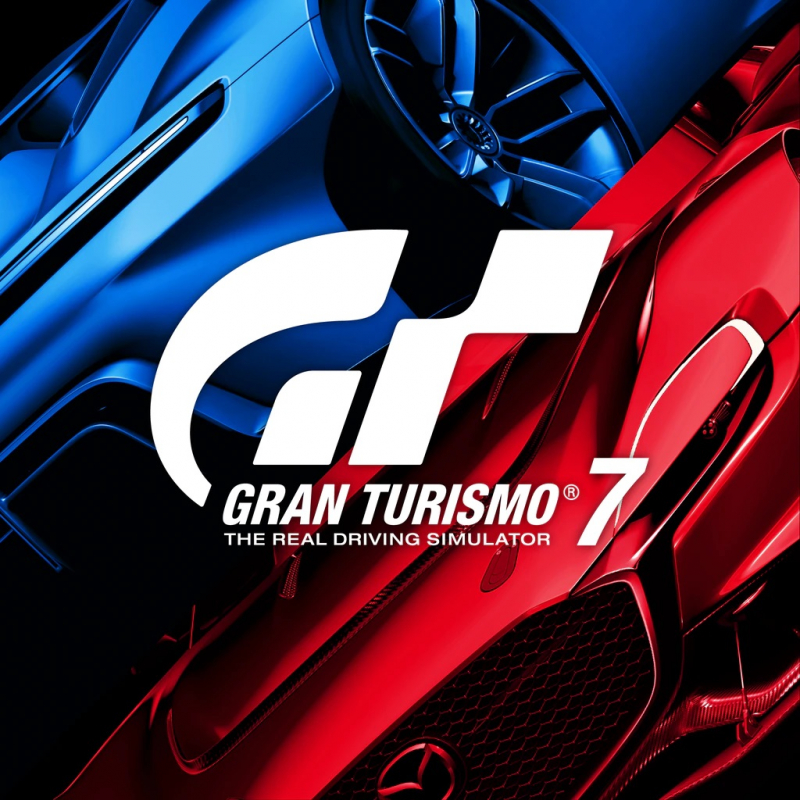



 Essay Pro
Essay Pro